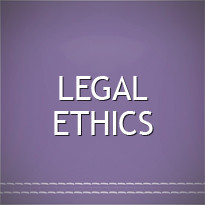Atty. Armando Ampil was the lawyer of Angela Perez. Atty. Ampil won several cases for Angela but the latter was yet to pay Atty. Ampil. As such, Atty. Ampil held on to three certificates of title covering the paraphernal properties of Angela as lien.
Meanwhile, Angela was sued by her husband and son (Antonio Perez and Benigno Perez) due to the fact that she had been indiscriminately dispensing her paraphernal properties in favor of a lover in an illicit relationship. Said case was filed in the sala of Judge Corazon Juliano-Agrava. Atty. Ampil did not represent Angela in this case.
Angela and Antonio and Benigno eventually came into an amicable settlement and they submitted a Compromise Agreement whereby Angela agreed to convey her paraphernal properties to Antonio and Benigno. The agreement was approved by the Court.
Antonio and Benigno tried to obtain the certificates of title from Atty. Ampil in view of the court-approved agreement but Atty. Ampil refused to turn over said titles as he has a lien over them. Antonio and Benigno then moved for execution against Atty. Ampil and the same was granted by the Court. Judge Agrava ruled that the attorney’s lien claimed by Atty. Ampil must be enforced by Atty. Ampil against Angela and not against Antonio and Benigno.
ISSUE: Whether or not Atty. Ampil has a right over the properties of Angela.
HELD: Yes. A counsel’s right to retain muniments of title in his possession until payment of his lawful fees and disbursements is effected is incontestable. An attorney cannot be compelled to surrender the muniments of title without prior proof that his fees have been duly satisfied.
It would also not matter that Angela’s properties were conveyed via the compromise agreement to Antonio and Benigno. Atty. Ampil’s lien came first. Thus, his position is similar to that of a creditor who holds an attachment lien over the properties and the client-debtor must discharge the lien before he can dispose the properties to a third person free of such lien.


